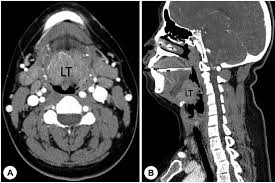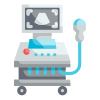Fill out form to enquire now
CECT For Hard Palate
Medintu has collaborated with the best pathology laboratories that are NABL and NABH certified and follow ISO safety guidelines to provide the best CECT For Hard Palate at an affordable price for needy individuals. Contrast-Enhanced Computed Tomography (CECT) for the Hard Palate is a diagnostic tool that helps to identify and evaluate a wide range of conditions affecting the hard palate—the bony part of the roof of the mouth. CECT combines the precision of CT imaging with the clarity of contrast agents to provide detailed, high-resolution images of both bone and soft tissue structures.
Accurate diagnosis is essential in the case of the hard palate for identifying conditions such as tumors, infections, congenital anomalies, fractures, and other abnormalities. CECT is crucial in revealing these issues by providing an enhanced view of the hard palate and surrounding structures, which may be difficult to assess with traditional X-rays alone. From early-stage detection of oral cancers to infections or planning for reconstructive surgery, CECT provides detail and precision not possible elsewhere and helps in time and effective management by health professionals. To schedule an appointment for a CECT For Hard Palate, simply contact Medintu or call our customer care at +919100907036 or +919100907622 for more details and queries.
What is CECT?
CECA stands for Contrast-Enhanced Computed Tomography. This is one type of medical imaging that shows detailed images of what happens inside the body and may be used to diagnose various diseases and conditions. During a CECT, a contrast agent, which is sometimes known as a dye, is injected into the body – either intravenously – and helps improve the clarity and view of blood vessels, tissues, and organs while under a CT scan. Contrast material helps to emphasize some structures, thus making abnormalities, such as tumors, infections, or vascular problems, easier to identify. CECT is used in many cases in the detection and assessment of cancers, the identification of blood vessel problems such as aneurysm, the examination of internal injuries following trauma, and in monitoring conditions such as infections or inflammatory diseases. The contrast enhances the resolution and the detail of the images produced and therefore makes it a valuable tool in medical diagnostics. A standard CT scan uses X-rays to create cross-sectional images (slices) of the body. These images are then combined to form a 3D image, which helps doctors visualize internal organs and structures. CT scans are usually fast, and when contrast is added, they can provide clear results in a relatively short period of time.
Role of CECT for the Hard Palate
The role of Contrast-Enhanced Computed Tomography in the assessment of the hard palate is mainly related to its high-resolution imaging of bony and soft tissue structures in the oral cavity and surrounding areas. The main ways through which CECT is applied for imaging the hard palate and other conditions include the following:
- Assessment of Lesions and Tumors:
- Benign Tumors: CECT can help characterize benign lesions such as fibromas, osteomas, or odontogenic tumors. The use of contrast enhancement helps delineate the relationship of the tumor to surrounding structures like the maxilla (upper jaw), nasal cavity, or maxillary sinuses.
- Malignant Tumors: CECT plays an important role in evaluating oral cancers, palatal squamous cell carcinoma, and salivary gland malignancies
- Trauma and Fractures:
- Facial Trauma: Following facial trauma, CECT is usually done to assess fractures of the hard palate, especially if there is suspicion of injury to the maxillary sinus or nasal cavity. The contrast agent outlines fractures, dislocations, or displacement of the palatal bone and may reveal fractures that are not easily detected on plain radiographs.
- Assessment of Sinus Involvement: During facial fractures, CECT can show whether the fracture extends to the maxillary sinus, which lies close to the hard palate, or if there is sinus haemorrhage or leakage of air.
- Infections:
- Abscess Formation: CECT can help in the diagnosis of infections involving the hard palate or the surrounding structures, like palatal abscesses or cellulitis. It delineates the extension of infection, its spread to adjacent soft tissues or to sinuses or oral cavity.
- Osteomyelitis: In cases where the bone is infected, such as palatal osteomyelitis (inflammation of the bone due to infection), CECT is valuable for assessing the degree of bone involvement, abscess formation, or sequestra (dead bone fragments) formation.
- Maxillary Sinus Pathologies:
- Sinus Disease: Since the maxillary sinuses lie immediately above the hard palate, CECT becomes indispensable in evaluating sinusitis or sinus tumors affecting the hard palate. Chronic sinus infections or tumors within the maxillary sinus may erode into the palatal bone. It helps assess such invasion by CECT.
- Congenital Abnormalities:
- Cleft Palate: CECT can be used to evaluate congenital conditions such as a cleft palate (although MRI is generally preferred for soft tissue imaging). In the case of cleft palate, CECT can be used in assessing the bony extent of involvement and the abnormalities of maxillary structures that may occur along with sinuses or nasal cavities.
- Vascular Lesions and Malformations:
Procedure for CECT Scan
The process of a Contrast-Enhanced Computed Tomography (CECT) scan usually involves several steps to ensure that the imaging is accurate, safe, and effective. Below is an overview of the typical steps involved in a CECT scan:
- Pre-Procedure Preparation:
Before the actual scan, there are some important preparations:
Medical History and Screening:
The patient will be questioned about their medical history, including any allergies, particularly to iodine or contrast agents, kidney function, and any previous reactions to contrast materials. Patients with renal issues, allergies, or thyroid problems must inform their doctor.
Pregnant or breastfeeding patients should inform the medical team since CT scans involve radiation, and they are usually avoided in pregnancy unless absolutely necessary.
Hydration:
In some instances, patients are also told to take plenty of fluid intake before the scan particularly if they have kidney concerns. Hydration aids to flush out the contrast from the body after the process.
Attire and Jewelries:
Patients will be required to change into the hospital gown, and the jewelry, metal objects or any clothing with metal portions should be removed as these may interfere with the scanning.
- Position on the CT Table:
Once the patient is ready, they will lie on a CT scan table:
The patient usually lies on their back; however, for some parts of the body, for example, the abdomen or chest, the patient must be positioned differently.
The part of the body to be imaged, such as the head, chest, or abdomen, is placed in the center of the CT scanner.
- Conducting the CT Scan:
Once the contrast has been given, the CT scanner will take a number of X-ray images of the region of interest:
Scanning: The CT scanner includes a large, ring-shaped device with a rotating X-ray tube within it. While the patient lies on a table that moves slowly through the machine, the X-ray tube revolves around the body.
Image Acquisition: The body is passed through the scanner in multiple thin slices or cross-sectional images called tomograms. The CT computer then processes these images to produce detailed 3D images of the area being examined.
At times, the patient will be asked to hold his or her breath for a few seconds to reduce movement and allow better images to be produced.
- Duration of the Procedure:
The actual scan itself typically takes between 5 and 30 minutes, depending on the area being scanned and the complexity of the examination. The entire process, including preparation and post-procedure observation, may take up to 1 hour or longer.
Benefits of CECT for Hard Palate Imaging
A good number of advantages can be acquired when imaging the hard palate using CECT. Below are the key benefits in acquiring imaging of the hard palate via the use of CECT.
- Bony and soft tissue structures can be well depicted.
- Bone and Soft Tissue Differentiation: The hard palate is basically bony in composition but closely associated with soft tissues (such as mucosa, muscles, and blood vessels). CECT improves the visualization of both hard (bony) and soft tissues, thus better differentiation and clearer imaging of pathologies affecting both.
- Clear Imaging of Bone: CECT provides clear images of the palatal bone, and one can diagnose fractures, lytic lesions, or bony involvement in tumors and infections.
- Detection of Tumors and Lesions:
- Benign and Malignant Tumors: CECT is particularly useful in detecting tumors of the hard palate, including both benign tumors and malignant tumors. The contrast agent can make it easier to differentiate the tumors from surrounding tissues that would otherwise be indistinguishable.
- For malignant tumors, CECT helps evaluate the extent of the tumor, invasion into adjacent structures, and metastatic spread to nearby lymph nodes or distant organs.
- Fractures and Trauma Evaluation:
- Facial Trauma In the case of facial trauma, CECT is the method of choice for detecting fracture hard palate, especially where the displacement or complicated fracture-involving maxillary sinus or other adjacent structure-raises a suspicion. The extent of bone injury can be assessed along with assessing soft tissue damage.
- Follow surgery or trauma, CECT would enable surveillance for healing and would potentially enable early detection of complications from infections to misalignment from broken bones.
- The Monitoring of Infections:
- Abscesses and Osteomyelitis: CECT is highly sensitive for diagnosing infections of the hard palate, including osteomyelitis or abscess formation. The contrast enhances the ability to detect areas of bone destruction, pus collection, or soft tissue swelling, which helps identify the extent of infection.
- Soft Tissue Involvement: If the infection spreads from the mucosa to deeper tissues, CECT helps define the borders of the infection and assesses its potential spread into surrounding structures.
- Tumor Staging and Pre-Surgical Planning:
- Accurate staging of malignant tumors: For patients diagnosed with oral cancers, such as palatal squamous cell carcinoma, CECT provides critical information for tumor staging. It allows the assessment of size, depth, and extent of local invasion and whether the tumor has invaded adjacent structures such as the maxillary sinus, nasal cavity, or muscles of the palate.
- It helps surgeons to plan the extent of resection before surgery. The CECT helps the surgeons to make sure that all the tumor is removed with the maximum preservation of healthy tissue.
- Test Type: CECT For Hard Palate
- Preparation:
- Wear a loose-fitting cloth
- Minimum 4 hours fasting required
- Carry Your ID Proof
- Prescription is mandatory for patients with a doctor’s sign, stamp, with DMC/HMC number; as per PC-PNDT Act
- Reports Time: With in 4-6 hours
- Test Price: Rs.3000
How can I book an appointment for a CECT For Hard Palate through Medintu?
To schedule an appointment for a CECT For Hard Palate, simply contact Medintu or call our customer care at +919100907036 or +919100907622 for more details and queries.
What is a CECT, and how does it differ from a routine CT scan?
CECT or Contrast-Enhanced Computed Tomography is a form of a CT scan where the use of contrast dye is employed to better enhance the images. The agent used helps highlight the presence of blood vessels, tissues, and abnormalities in better detail than that obtained using a routine CT scan without the use of contrast.
Why would I need a CECT scan of my hard palate?
You should seek a CECT scan when you have symptoms like unexplained pain, swelling, bleeding, and even difficulty in chewing and swallowing. It is used for evaluating conditions such as tumor, fracture, infection, and congenital anomaly in the hard palate for an effective diagnosis and planning.
Does the CECT procedure hurt?
No, the CECT scan itself is not painful. You will lie on a table while the CT machine takes detailed cross-sectional images. The contrast agent is injected into a vein, which may cause a brief sensation of warmth or a metallic taste, but this is generally not uncomfortable.
Are there any risks associated with CECT?
While CECT is generally safe, there are some risks associated with the use of contrast agents, such as allergic reactions or kidney problems, especially in patients with pre-existing kidney conditions. Your doctor will assess your health history before recommending a CECT scan to minimize risks.
How long does a CECT scan take?
The actual scan usually takes about 10 to 15 minutes, but the whole process, including preparation and administration of the contrast agent, may take around 30 minutes.
Can I have a CECT scan if I’m pregnant?
CECT is generally not recommended during pregnancy because of the risks of radiation exposure to the fetus. If you are pregnant or suspect that you may be, please inform your doctor beforehand. They may then suggest other imaging methods that are less risky.
What should I prepare for a CECT scan?
You will be asked to abstain from eating for a number of hours before the examination, especially if you are taking an intravenous contrast agent. In this case, you should follow all the instructions given by your doctor. You should also give your doctor information about all allergies, especially contrast media, and any kidney issues.
Do I need to do anything after the scan?
After the scan, you may return to your normal activities. Drink lots of fluids to flush out the contrast agent from your body. If you experienced mild side effects from the contrast dye, such as an allergic reaction or discomfort, inform your healthcare provider.
Why Choose Medintu for CECT For Hard Palate?
Medintu is an online medical consultant that provides home-based medical services not only in your area but also in most cities in India, including Hyderabad, Chennai, Mumbai, Kolkata, and more. We have collaborated with diagnostic centers that have the best machines and equipment to ensure you get accurate results. Medintu provides 24-hour customer service for booking the appointment of the services and guides you with instructions. Medintu also provides the best diagnostic centers at low prices. Once you receive your test results, you can easily book an appointment with our network of experienced doctors for consultation. To schedule an appointment for a CECT For Hard Palate, simply contact Medintu or call our customer care at +919100907036 or +919100907622 for more details and queries.





